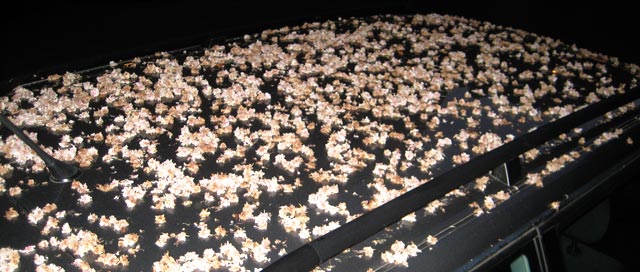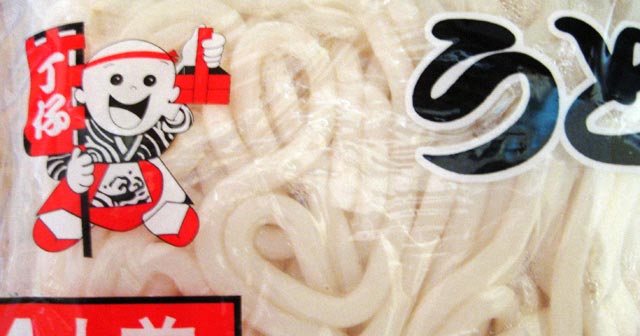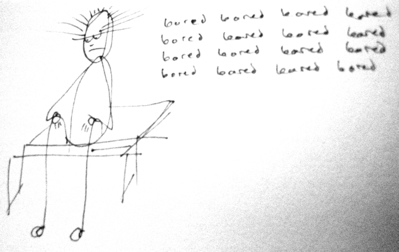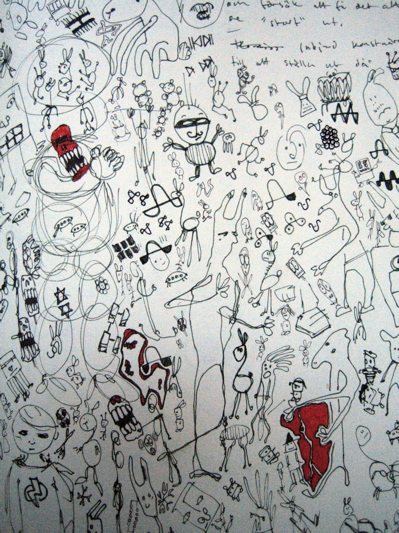Sheer egoism. Desire to seem clever, to be talked about, to be remembered after death, to get your own back on the grown-ups who snubbed you in childhood, etc., etc. It is humbug to pretend this is not a motive, and a strong one. Writers share this characteristic with scientists, artists, politicians, lawyers, soldiers, successful businessmen—in short, with the whole top crust of humanity. The great mass of human beings are not acutely selfish. After the age of about thirty they almost abandon the sense of being individuals at all—and live chiefly for others, or are simply smothered under drudgery. But there is also the minority of gifted, willful people who are determined to live their own lives to the end, and writers belong in this class.
→ George Orwell: Why I write
The infrastructure of publishing constrains the thinking of writers. Obviously, all forms of art and design have some inherent constraints-but it seems to me that writers are especially misled by the apparent freedoms of language. Published language, in print, on paper, is not language per se: It’s an industrial artifact.
→ Interactions magazine, Bruce Sterling: Design Fiction
Nevermind, of course, that you can use ball-point pens to write whatever you want: a novel, a screenplay, epic poems, religious prophecy, architectural theory, ransom notes. You can draw astronomical diagrams, sketch impossible machines for your Tuesday night art class, or even work on new patent applications for a hydrogen-powered automobile – it doesn’t matter. You can draw penises on your coworker’s paycheck stub. It’s a note-taking technology.
→ BLDGBLOG.com, Geoff Manaugh: How the other half writes: In defense of Twitter


When you’re young, it’s easy to believe that such an opportunity will come again, maybe even a better one. Instead of a Lebanese guy in Italy, it might be a Nigerian one in Belgium, or maybe a Pole in Turkey. You tell yourself that if you travelled alone to Europe this summer you could surely do the same thing next year and the year after that. Of course, you don’t, though, and the next thing you know you’re an aging, unemployed elf, so desperate for love that you spend your evening mooning over a straight alcoholic.
→ The New Yorker, David Sedaris: Lost loves and lost years
Honey has completed her first project for me: research on the person Esquire has chosen as the Sexiest Woman Alive. (See page 232.) I’ve been assigned to write a profile of this woman, and I really don’t want to have to slog through all the heavy-breathing fan Web sites about her. When I open Honey’s file, I have this reaction: America is fucked. There are charts. There are section headers. There is a well-organized breakdown of her pets, measurements, and favorite foods (e.g., swordfish). If all Bangalorians are like Honey, I pity Americans about to graduate college. They’re up against a hungry, polite, Excel-proficient Indian army. Put it this way: Honey ends her e-mails with “Right time for right action, starts now!”
→ Esquire, A. J. Jacobs: My outsourced life
Critics compare him to Kafka, but it is from Borges that Auster borrows his allegories (detective work, biographical research) and his favorite theme: the impossibility of ever really knowing anything. This is an unwise choice of material, because he is not enough of a thinker to convey the fun that makes intellectual exercise worthwhile after all. The gnostic correspondences between Chinese food and food for thought; dog spelled backwards is god—this is philosophical writing?
→ The Atlantic Monthly, B. R. Myers: An attack on the growing pretentiousness of American literary prose

